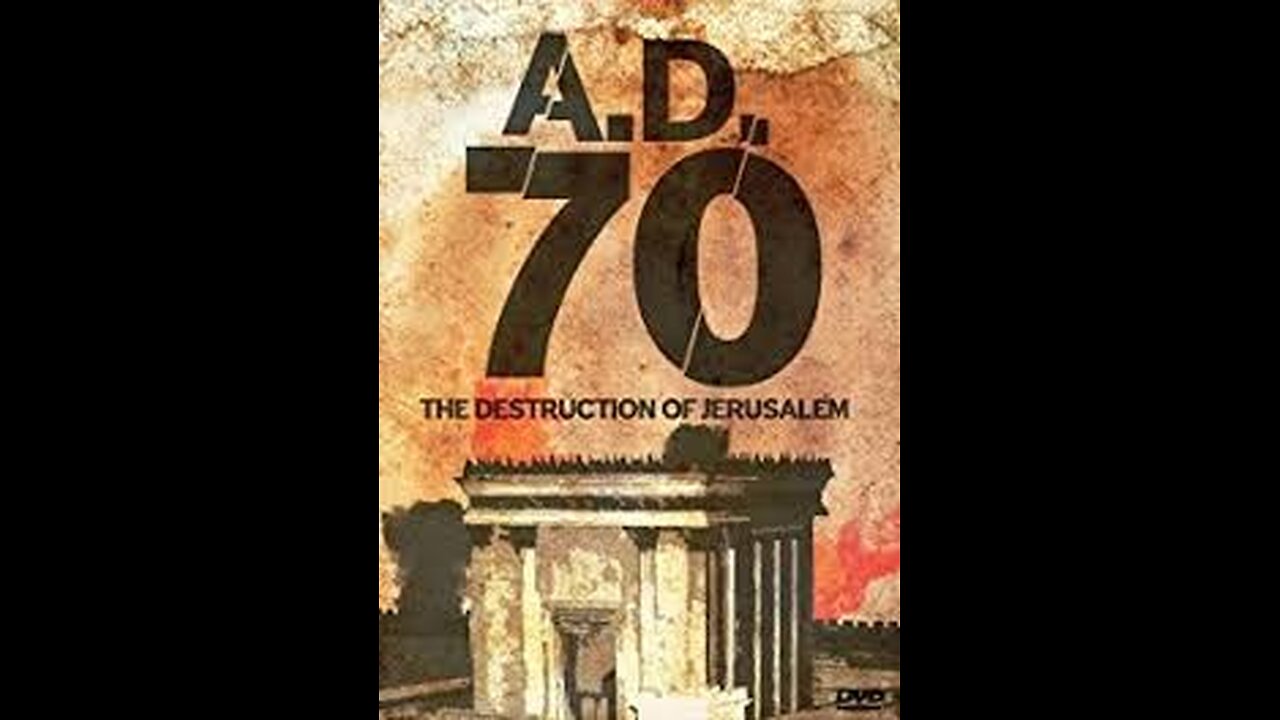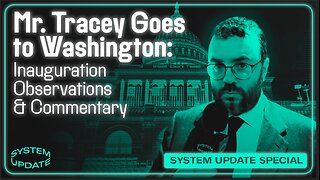Premium Only Content

The Fall of Jerusalem in 70 AD as recorded by Flavius Josephus
In AD 70, roughly 40 years after the death and resurrection of Jesus, the Romans destroyed the Jewish temple in Jerusalem. Jesus had predicted the destruction of the temple in Luke 21:6 and Matthew 24:2.
Other biblical prophecies may have also been fulfilled in AD 70, such as Luke 23:27–31, which seems to fit the Roman genocide of the Jewish people. There is debate as to whether other prophecies, such as those in Daniel 9, Matthew 24—25, and Revelation 6—18, were also fulfilled then. Theologians who hold to partial or full preterism would say that most, if not all, biblical prophecies were fulfilled during the first century. Dispensationalism holds that only the destruction of the temple, and possibly the genocide, were fulfilled in AD 70, while the remainder of the prophecies await fulfillment.
When studying prophecy, it is important to remember that prophetic events are not described in the Bible with the clarity that historical present or past events are reported. Much is open to interpretation. Particularly when highly symbolic meanings are attached to prophetic biblical passages, many periods and events in history can be made to fit. Prophecies dealing with the end times, the study of which is called eschatology, are open to interpretation.
However, when some make the argument that most or all of the prophecies about the end times were fulfilled in AD 70, they cannot include those made in Revelation as it had most likely not even been written at that time.
Theologically, to fit all end-times prophecy into the events in and around AD 70 takes some literal and figurative gymnastics, applying differing interpretive approaches even within the same passage. Reasonable theology and eschatology concludes that prophesies about the destruction of the temple and a genocide of Jews were fulfilled in AD 70 and other prophesies regarding the end times are yet to be seen.
-
 2:08:22
2:08:22
Kim Iversen
6 hours agoIs This Even Legal? Trump’s Push to End Birthright Citizenship and The Insane Plan to Move Palestinians to Indonesia
45.3K113 -
 1:27:06
1:27:06
Glenn Greenwald
6 hours agoMr. Tracey Goes To Washington: Inauguration Observations, Interviews & Commentary | SYSTEM UPDATE #393
109K41 -
 52:01
52:01
Tucker Carlson
10 hours agoNew York Mayor Eric Adams Sounds a Lot Like a Trump Voter
178K162 -
 2:47:25
2:47:25
Right Side Broadcasting Network
9 hours agoLIVE REPLAY: President Donald J. Trump Holds First Press Briefing Since Inauguration - 1/21/25
221K185 -
 DVR
DVR
Man in America
8 hours agoTrump UNLEASHED! Dismantling the Deep State and Restoring America
22.3K16 -
 27:22
27:22
I_Came_With_Fire_Podcast
10 hours ago🔥SPECIAL RELEASE🔥 Inflation Reduction Act: American Seniors Get SLAMMED!!
9.52K3 -
 6:25:28
6:25:28
vivafrei
8 hours agoD.C. Gulag Jan. 6 Prisoners Release Watch!
179K84 -
 1:49:14
1:49:14
Redacted News
7 hours agoTrump is Back! Congress Uncovers New Biden Crimes One Day After He Leaves D.C. | Redacted
164K227 -
 2:09:53
2:09:53
Benny Johnson
8 hours ago🚨President Trump LIVE Right Now Making MASSIVE Announcement At White House News Conference
277K327 -
 2:04:10
2:04:10
Revenge of the Cis
8 hours agoEpisode 1433: Retribution
117K16